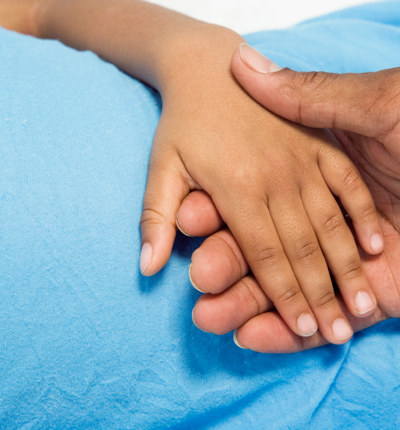
Sodium valproate families looking for a way ahead
Maria Panteli considers what might lie ahead for parents of fetal valproate syndrome children as the Cumberlege Review is due to publish its long awaited report next week.
Posted on 02 July 2020
The safety of your unborn baby is undoubtedly of paramount importance to a woman who is considering a pregnancy.
It is therefore devastating to discover that the medication you have been prescribed to control your epileptic convulsions has caused harm to your baby of which you were not counselled prior to becoming pregnant.
The injuries caused to the baby, through no fault of her own, is a terrible burden for a mother to have to live with. Informed consent is a fundamental principle of anyone receiving medical treatment.
A large number of babies exposed to sodium valproate (Epilim), an anti-convulsant medication for epilepsy, during pregnancy are born with physical defects and neuro-developmental issues. These birth defects are known as fetal valproate syndrome.
In February 2018, following patient-led campaigns, the government ordered an independent safety review – the Independent Medicines and Medical Devices Safety (IMMDS) Review – into sodium valproate, which is chaired by Baroness Julia Cumberlege (known as the Cumberlege Review). The review is due to publish its recommendations on 8 July, 2020.
On 24 April 2018, the Medicines and Healthcare Products Regulatory Agency (MHRA) issued a statement stating that: “Valproate must no longer be prescribed to women or girls of childbearing potential unless they are on the pregnancy prevention programme”.
The National Institute for Health and Care Excellence (NICE) states: “Medicines containing valproate taken in pregnancy can cause malformations in 11 per cent of babies and development disorders in 30-40 per cent of children after birth.
“Valproate treatment must not be used in girls and women, including in young girls below the age of puberty, unless alternative treatments are not suitable and unless the terms of the pregnancy prevention programme are met. In pregnancy, valproate is contra-indicated and an alternative treatment should be decided on, with appropriate specialist consultation.”
Mothers and families whose children have fetal valproate syndrome face immense challenges caring for children with complex health needs, while those mothers still also have to manage their own epilepsy.
Some of the children have complex and wide-ranging needs and require 24-hour care. Sadly, there is no cure for fetal valproate syndrome.
For those children diagnosed, the only route for parents is to seek the best medical treatment and support for them and their child, which is not always available or easy to put into place.
There have been calls for the government to set up a compensation scheme although this has not yet taken place. Affected families hope that the Cumberlege Review will include such a scheme in a list of recommendations to be published next week.
If it does not, many families will be forced to seek independent legal representation to get justice and the compensation they deserve.

